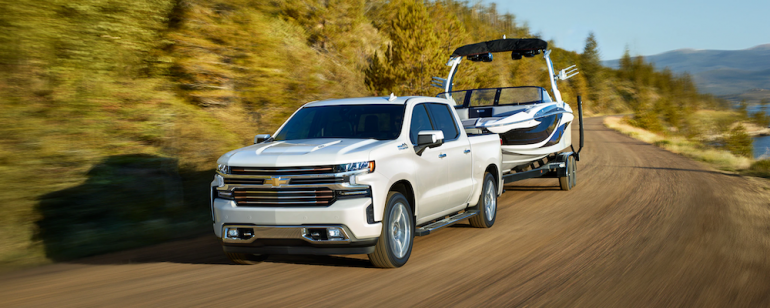The likes of U-Haul offer trailers that customers can use for their do-it-yourself relocation. While trailers are easy enough to use, their improper use can result in damage to property and personal injuries to the user and to others. Indeed, the importance of proper use from matching the tow vehicle with the trailer to driving both down the road cannot be overemphasized.
Here then are must-do safety precautions when using U-Haul trailers, many of which are also recommended by the nationwide company, too.
Match the Trailer to the Tow Vehicle
There’s no one-size-fits-all when it comes to the tow vehicle-trailer combo and it isn’t safe to assume that your vehicle is suitable for every trailer on the U-Haul catalog. There are certain basic guidelines provided by U-Haul when matching the tow vehicle to the trailer and these guidelines should be closely followed to avoid accidents on the road.
First, the total weight of a fully-loaded trailer without brakes shouldn’t exceed the tow vehicle’s empty weight (i.e., also called the curb weight). This makes sense as the latter will be pulling the former so if the tow vehicle’s curb weight is lesser than the trailer’s fully loaded weight, then it’s just asking for trouble.
Second, the total weight of a fully-loaded trailer with brakes may exceed the tow vehicle’s curb weight but with limitations. Ask the U-Haul staff about the weight limits so as to stay on the safe side.
Third, check the compatibility between the coupler and hitch ball. You should also ensure that the components on your tow vehicle’s hitch system have ratings exceeding the fully-loaded weight of your trailer.
If your tow vehicle and your desired trailer aren’t compatible, you shouldn’t force it, so to speak. You should find a smaller trailer, for example, and pack your belongings in a more efficient manner, perhaps leave your other things in storage.
Apply Proper Hookup Steps
With the tow vehicle and trailer properly matched, the next step is to hook them up. Here, you have to be safe, too, especially as you can become injured by the hook.
First and foremost, you should be focused on the job at hand. If you’re distracted, you’re likely to miss a step or two in the hook-up procedure and, thus, your safety on the road can be compromised. You should complete the hook-up procedure from start to finish, double-check the hook-up, and then check again; you never can be too safe when you’re towing a trailer, whether on a busy highway or on a dirt road.
Again, check that the ball size and the coupler on your tow vehicle match.
For a ball clamp coupler being attached to the hitch, tighten the former into the latter as tight as you can. Then, give the trailer a vigorous shake to determine if these parts are securely attached but don’t stop there – tighten the clamp again for good measure.
For a latch-style coupler being hooked up to a trailer, release the latch, place the coupler on the coupler and close the latch. Be sure to securely fasten the coupler and ball with a pin or lock and double-check that everything’s in proper order. Connect the safety chains to the hitch; crisscross the safety chains and loop them through the hitch’s loops before crossing them again and securing the hooks to the safety chains.
Note that the safety chains should neither be too tight that there’s no slack nor too slack that these drag on the ground. The safety chains should have sufficient slack so turning the tow vehicle and trailer won’t be an issue.
Don’t forget to connect the tow vehicle’s brake lights, turn signals and running lights to the trailer. You should check that these lights and signals are, indeed, functioning before driving away in your tow vehicle. Otherwise, you may be putting yourself and others in danger, not to mention that law enforcement may be on your tail.
Other safety practices that you should be aware of include:
- Check the coupler and connections (lights and signals) on your trailer to ensure that these are connected properly whenever you stop for gas. Even if you’re not stopping for gas or a restroom break, you may want to check it every two hours or so just to be sure; it should take five minutes or less but it will save you headaches.
- Check the tire pressure on your trailer and tow vehicle as often as you can, too. You may observe increased drag, which can be a sign of tire issues, so pull off the road and make an inspection. This is also true when you head strange noises or observe changes in the vehicles’ performance.
Trailers are great for hauling your personal belongings as well as furniture and appliances from one place to the next. But you should respect their capacity and limitations, too, especially in terms of their weight capacity for safety reasons.

